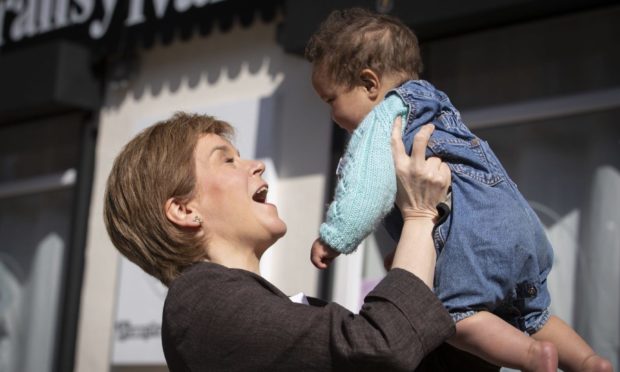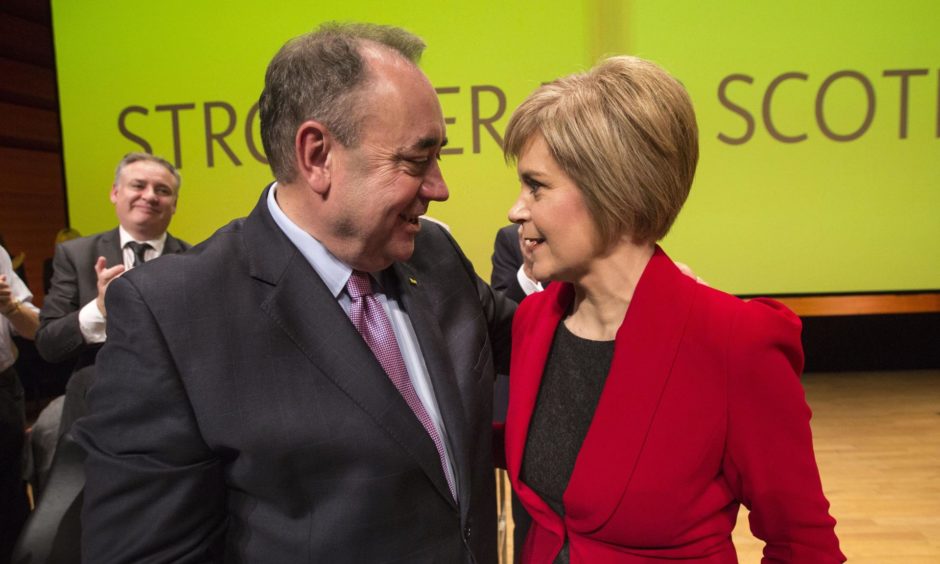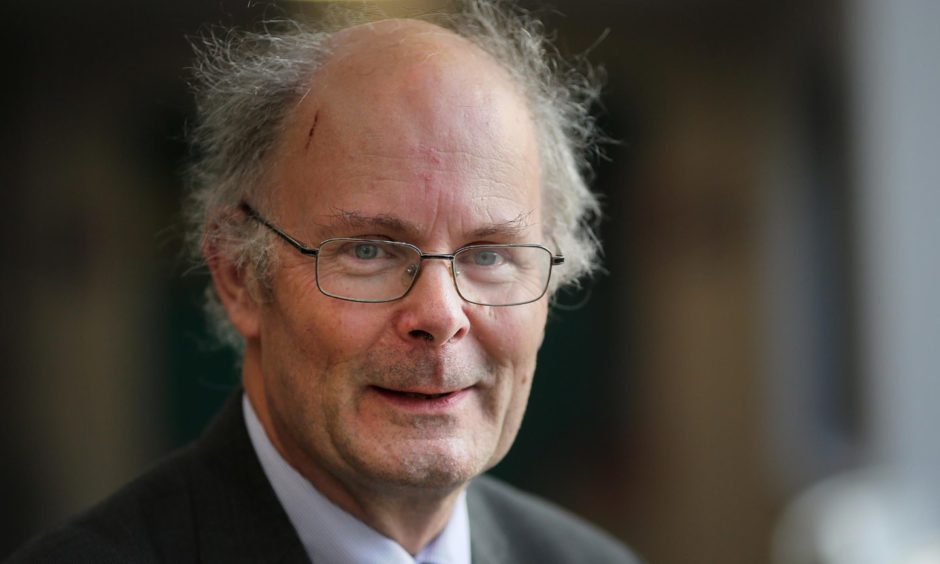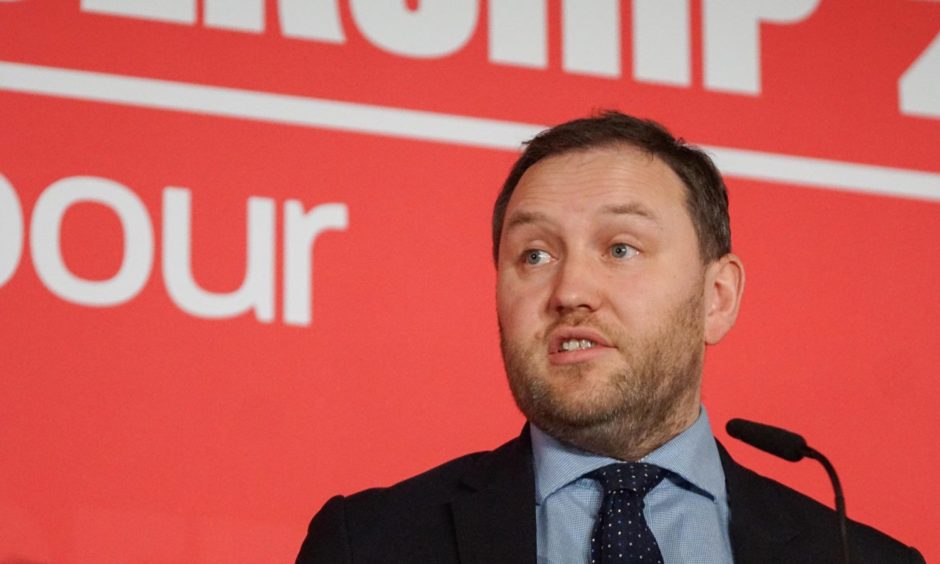The SNP is on course for a historic fourth victory, a new poll has revealed, with the Greens the bigger threat to Nicola Sturgeon’s five-seat majority than Alex Salmond’s Alba Party.
The opinion poll, carried out for The Sunday Post by polling company Survation, suggests the SNP will take 67 seats, giving Nicola Sturgeon a majority of five at Holyrood.
The survey of more than 1,000 Scots last week shows Scottish Labour is poised to take second place from the Conservatives.
Alex Salmond is less popular than Boris Johnson with Scottish voters, according to the polling, and his Alba Party is projected to secure just 3% of the regional list vote and needing a late surge in support to win any seats.
Scottish Labour is projected to win 24 seats, the same number the party won in the last Holyrood election, with the Scottish Tories coming third with 22 seats, nine fewer than they won in 2016.
The Scottish Greens could almost double their seats from six to 11, with leading polling expert Sir John Curtice arguing they are doing “much of the damage” to the SNP, with as many as 15% of SNP constituency voters saying they will back the Greens on the list.
The survey suggests the Scottish Liberal Democrats would secure a total of five seats.
Alex Salmond is the least popular political leader in the UK among Scottish voters with just 10% holding a favourable view of him and 74% holding an unfavourable view, giving him a net rating of -64.
His former ally Nicola Sturgeon remains Scotland’s most favourable leader, with 52% of voters holding a favourable view of her.
When those with unfavourable views are subtracted from favourable to give a net score, only the SNP leader and Scottish Labour leader Anas Sarwar have positive ratings, with Mr Sarwar on 29% favourability, a net rating of seven.
Mr Johnson has an approval rating of 21% but is unpopular with 64% of Scots voters.
‘Greens doing much of the damage’
Professor Curtice said: “At the beginning of the campaign Nicola Sturgeon was concerned that Salmond’s Alba Party would eat into her party’s list vote.
“There is not much sign of that happening. Just 5% of SNP constituency voters are backing Salmond.
“Rather, it is the Greens who are doing much of the damage with as many as 15% of SNP constituency voters saying they will back the Greens on the list.”
SNP depute leader Keith Brown said the poll shows the election is “on a knife-edge” when it comes to whether the SNP has a majority.
He added: “Only Nicola Sturgeon and the SNP are strong enough to stand up to Boris Johnson.
“A vote for any other party is a vote to leave Scotland’s future in Boris Johnson’s hands and that underlines the importance of giving both votes to the SNP.”
Ian Murray, Scottish Labour campaign co-chair, described Mr Sarwar’s “positive campaign for a national recovery” as “cutting through with voters”.
“Anyone who wants our politics to focus on what unites us, not what divides us, should support Scottish Labour with both votes, especially the peach ballot second vote.”
The Alba Party shrugged off the apparent unpopularity of its leader, saying: “We have polled that we are on course to help elect a supermajority of pro-independence MSPs.
“We are confident that as the party that has made independence the key issue in this election it will result in parliamentary representation when our message hits home.”



